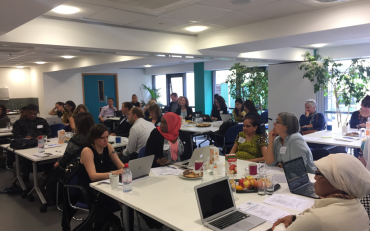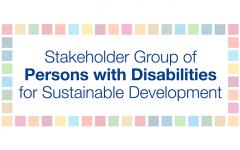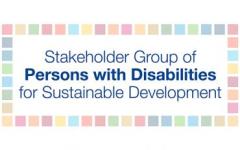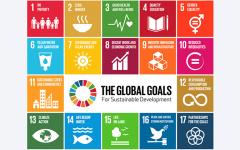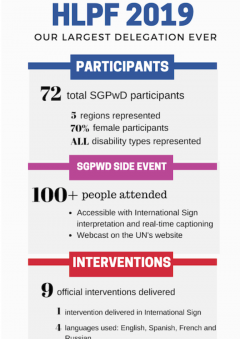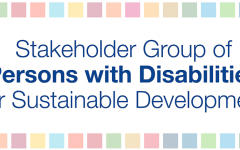Leonard Cheshire Disability, Handicap International and Sightsavers, on behalf of the International Disability and Development Consortium (IDDC) and the International Disability Alliance, co-organised and co-financed an informal meeting to enhance the coordination for CRPD compliant SDG monitoring on 26 and 27 September 2017, in London, United Kingdom. Participants included representatives of organisations of persons with disabilities from members of IDA and IDDC, including IDDC members: ADD, Atlas Alliance, Bevez, CBM, Disabled Persons Organisation Denmark, Leonard Cheshire Disability and Inclusive Development Centre, Motivation, Light for the World, Sense International, Handicap International and Sightsavers. IDA representatives included DPOs from the African Disability Forum, Pacific Disability Forum, World Network of Users and Survivors of Psychiatry, and Inclusion International. Representatives from Disability Rights Advocacy Fund (DRAF) and the OHCHR also participated in the meeting.
The purpose of the 2-days event was to share existing or upcoming initiatives with regards to CRPD-compliant SDG monitoring at country and regional levels and learnings from the High-Level Political Forum. Synergies and complementarities in coverage, methods, knowledge-sharing and/or any relevant area were identified to optimize efforts and resources.
With regards to the implementation of the SDGs at national level, Berhanu Tefera of the African Disability Forum discussed the participation of the Stakeholder Group of Persons with Disabilities at the High-Level Political Forum, which has “ensured the inclusion of persons with disabilities in each of the thematic areas under HLPF 2017 theme". Angeline Chand of the Pacific Disability Forum noted the use of the toolkit developed by IDA on the implementation of the SDGs in the Pacific region, to guarantee that countries in the Pacific were prepared in order to provide shadow reports in front of the CRPD Committee and at the HLPF.
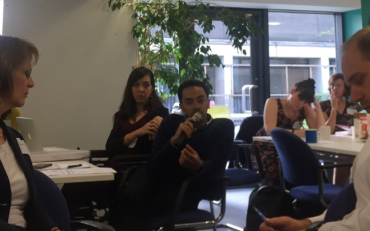
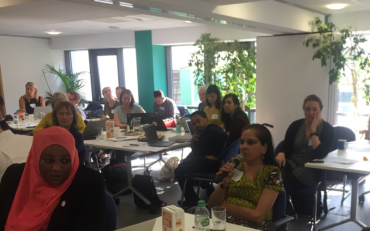
The representatives also discussed value of the BRIDGE CRPD-SDGs training initiative at regional and country levels. Risnawati Utami of DRAF, from Indonesia, highlighted how the BRIDGE training brings all constituencies of persons with disabilities together in one space, as well as it opened opportunity in mainstream public policies and technical cooperation, including with the Word Bank and DFAT. At grassroots levels, BRIDGE CRPD-SDG gives DPOs a strong strategic approach to working closely and lobby together for the rights of persons with disabilities at national level and with the government. Fatma Wangari of Inclusion International, from Kenya, noted how BRIDGE CRPD-SDG provides opportunities to include underrepresented groups, including persons with intellectual disabilities.
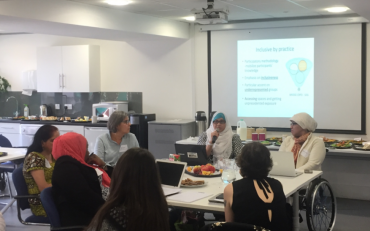
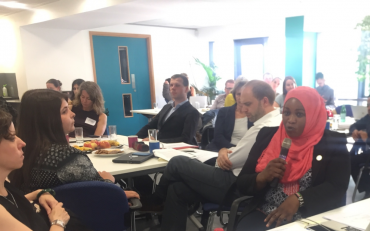
In addition, when considering other training initiatives, Victoria Lee, from OHCHR, presented on the Bridging the Gap I, a joint project with the OHCHR and the EU on linking implementation of the SDGs & the CRPD. The project seeks to develop several tools to facilitate this process, including human rights indicators for the CRPD, policy guidelines for SDGs implementation based on the CRPD, a matrix linking the CRPD and SDGs, guidelines for data sources to populate indicators for monitoring of SDGs implementation. Victoria highlighted the gaps that are to be addressed: developing versus developed, marginalised versus mainstream, development versus human rights.
Bailey Grey of Sense International noted that the global dialogue on data by disability has moved a long way. For example, the use of the Washington Group short set has already provided evidence for some trends on the situation. This will support programming as individual organisations and as networks.
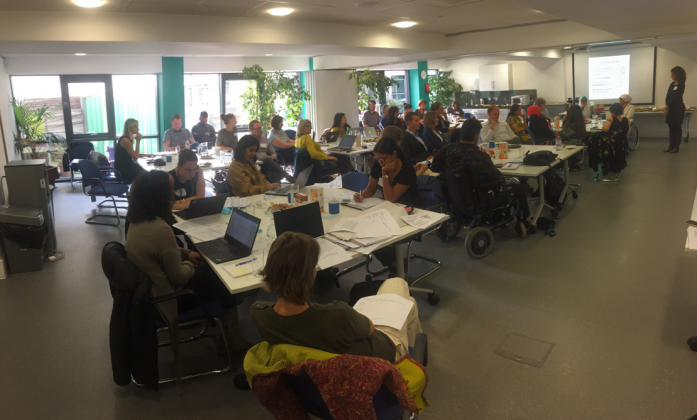
The importance of the Human-Rights based approach towards development was stressed in order to ensure that rights and development are universal and applicable to all countries and people; indivisibility of civil, political, social, economic and cultural rights; and ensuring equality and non-discrimination so that no one is left behind.
During the meeting, there was understanding on the need to take advantage of the SDGs and the 2030 Agenda, as they provide opportunities to secure the inclusion of persons with disabilities in all aspects of society, rights and development. However, the 2030 Agenda also presents risks. Though there are explicit references to persons with disabilities, there is a risk that policy makers may not be informed of good practices for ensure inclusion. As such, there is the need to develop concrete tools to link the SDGs to the CRPD for mutual reinforcement.
There was also an interactive discussion on the Stakeholder Group of Persons with Disabilities at the High-Level Political Forum, which is the mechanism in which persons with disabilities engage in the global SDGs processes. There was agreement on the need to strengthen the strategy of the group, so that the disability community can work together to include a broader group of persons with disabilities from grassroots and national levels at the processes that take place at the global level. The Stakeholder Group will work to strategize with the Members of the group to ensure that the process is inclusive and that the SDGs are meaningfully implemented on the ground at grassroots, national and regional levels.
